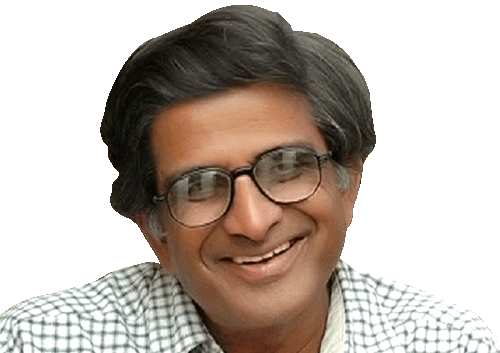The Man and the Times
(EPW; 26 June 1999)
Ideology and Adjudication: The Supreme Court and OBC Reservations
(EPW; 24 October 2009)
A sad fact about the Indian judiciary is that where the judges have felt urgent ideological compulsion they have not let mere canons of discipline stop them. Judgments by smaller benches have prised open what even a nine-judge bench has declared to be the law to such an extent that most of the issues are again open for rewriting. The judgment in Ashoka Kumar Thakur vs Union of India is a case in point.
What the Court was not called upon to answer is whether and to what extent the government or the educational institutions may relax the qualifying marks to enable the OBC students to access the reservations, and what is to be done if they fail to access the seats in sufficient number. It has been the general experience that the first time that reservations are given to any social class, not many are able to access it and a sufficient relaxation of the criterion of selection is needed to make the reservation a reality. It is also a matter of experience that the relaxation will not be needed after a certain time. What is to be done in this regard is a matter of government policy, and while the courts may be called upon to adjudicate the validity of a policy once it is formulated, it is not for them to say what it should be. But three judges thought otherwise. Arijit Pasayat and C K Thakker begin by properly asking the central government to “examine the desirability of fixing cut-off marks in respect of candidates belonging to OBCs” but add the uninvited illustration that “five grace marks may be added to OBC students”. And then go on to positively mandate that if any seats in the OBC quota remain vacant, they shall be filled up by “candidates from the general categories”. Dalveer Bhandari is more forthright. He orders that the qualifying cut-off marks may be reduced by not more than 10 (out of 100) for the OBCs, but again if the qualifying OBC students fail to avail the 27% reservation, “the remaining seats would revert to the general category”.
These orders that overstep the powers of the Court have now come home to roost, and in the process proved the vacuity of the loud lament about the creamy layer that is the most jarring note in the judgment: this academic year the 27% OBC quota has remained largely unfilled in most of the central educational institutions. To begin with, the union government took the initiative in leaving the policy to the institutions. The Ministry for Human Resources Development issued an office memorandum (OM) dated 20 April 2008 authorising the central educational institutions to “fix cut-off marks for admission/ selection through admission test, etc, for the OBC candidates with such differential from the cut-off marks for the unreserved category as each institution may deem appropriate for maintaining the standards of education and at the same time ensuring that sufficient number of eligible OBC candidates are available”. Maybe the decision to leave it to the institutions was not very wise for educational institutions of the elite variety are the most steeped in brahminical attitudes in our country. But good or bad, the OM still left it open for means to be devised so that sufficient number of OBC students do enter the institutions. But the Supreme Court again came in the way without so much as acknowledging let alone adjudicating the policy decision taken by the union government. Someone moved the Supreme Court for a “clarification” in the matter and the Court, after hearing the government too, which must have informed it of the OM dated 20 April 2008, passed an order on 14 October, approving the policy pronouncement of Dalveer Bhandari, namely, relaxation of not more than 10 in the qualifying cut-off marks and filling of unfilled seats by the general category, “having regard to the observations made in the judgments pronounced by this Court”. What observations? Only Dalveer Bhandari made such an observation.
Arijit Pasayat and C K Thakker said something else. Chief Justice K G Balakrishnan whose contribution to the Ashoka Kumar Thakur case is scrupulous in following the sympathetic spirit of the Mandal Commission judgment, rightly avoided making any policy pronouncement. The last judge, R V Raveendran, who expressed an impossible agreement with all the other four, wrote a brief judgment which too avoids the issue.
Yet, the same five judges sitting again endorse what is a policy made by judicial fiat
by one of them, implicitly overruling the government’s policy decision without even
referring to it. The result is that the upper castes who earlier had much of the 100% to
themselves now have more than 100%. The urge the courts – which remain a bastion of the upper castes – feel in the matter of preempting what they believe to be undesirable policy decisions in connection with reservations is nowhere more evident.
It is not possible to conclude this without commenting on the extraordinary interpretation put by the Jawaharlal Nehru University (JNU) on the order of 14 October 2008 passed by the Supreme Court. It should be obvious to even a child that what the Court said was that if a student in general has to get, say, 40 marks in the qualifying test or interview or whichever combination of two the institution prescribes, to be eligible for selection to a course, then in the case of OBCs it will be sufficient if the candidate gets 30 marks. It takes exceptional intelligence to read it as anything else. But they evidently possess that in that university. A committee of five teachers concluded that what the Supreme Court meant when it spoke of relaxation of not more than 10 in the cut-off marks was that the marks obtained by an OBC candidate must be within 10 marks of the least marks obtained by those who have qualified in the general category for the OBC candidate to be eligible for selection! Social scientists for some time now have been speaking much of the legitimacy of diverse “readings” of “texts” but one does hope that in the JNU they have not carried it to misreading of plain English.


